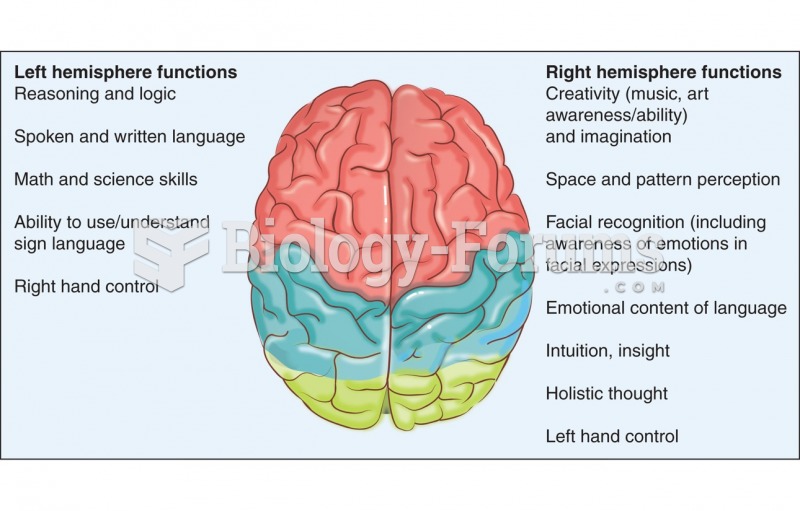|
|
|
Human stomach acid is strong enough to dissolve small pieces of metal such as razor blades or staples.
Medication errors are three times higher among children and infants than with adults.
Hyperthyroidism leads to an increased rate of metabolism and affects about 1% of women but only 0.1% of men. For most people, this increased metabolic rate causes the thyroid gland to become enlarged (known as a goiter).
Human kidneys will clean about 1 million gallons of blood in an average lifetime.
As many as 28% of hospitalized patients requiring mechanical ventilators to help them breathe (for more than 48 hours) will develop ventilator-associated pneumonia. Current therapy involves intravenous antibiotics, but new antibiotics that can be inhaled (and more directly treat the infection) are being developed.







